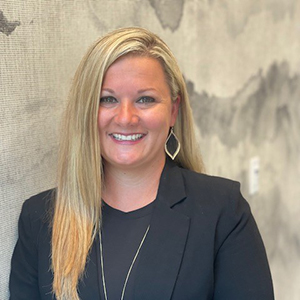Explore Related Nurse Specialties
Occupational Health Nurse Career Guide
Nearly three million people are injured at work every year. These nurses are here to help.
Occupational Health Nurse at a glance
Where you’ll work: Large corporations or companies, military bases, urgent care centers, hospitals, academic settings and labor facilities such as construction sites, warehouses or factories.
What you’ll do: Specialize in promoting health and safety in the workplace. They provide health and safety programs and services to prevent and treat illness, injury, and other hazards inside organizations.
Minimum degree required: ADN or BSN, but most occupational health nurse jobs prefer a BSN.
Who it’s a good fit for: Occupational health nursing can be a great fit for someone who wants to work in a non-traditional medical setting and is adept with not only clinical duties, but administrative and educational responsibilities as well.
Job perks: Working for large corporations or companies could mean you get a competitive benefits package and salary as one of their employees.
Opportunities if you pursue a higher degree or certification: You can become a Certified Occupational Health Nurse (COHN) by the American Board of Occupational Health Nurses (ABOHN) which demonstrates your expertise in the field and could lead to more job opportunities and higher pay.
Median annual salary: $86,070
Occupational health nurses identify workplace hazards and help develop safety protocols and plans. They train employers and employees to avoid injuries at work. When an injury does occur, they assess and treat the injured employee. They’re also responsible for tasks such as new employee physicals, annual employee flu shots, and employee drug testing.
In This Article
How to Become an Occupational Health Nurse | Job Description | Licenses and Certifications | Salary | Career Outlook | Professional Resources
Occupational health nurses, also called environmental health nurses, are employed by companies to manage staff health. Many work for large companies and corporations, while others work at high-risk locations such as construction sites and manufacturing plants. Smaller locations such as schools, retailers, and entertainment venues also employ occupational health nurses.
Occupational health nurses, also called environmental health nurses, are employed by companies to manage staff health.
As with many healthcare jobs, the role of the occupational health nurse has expanded.
“Over the past several years, our list of responsibilities has grown exponentially,” says Christina Whalen, RN, vice president of clinical operations at Plano, Texas-based Intuitive Health. “You must be savvy at many different things—administering care, bedside care, inventory, and other necessary tasks to keep the system running.”
Most occupational health nurses have at least a bachelor’s degree, and earning a master’s degree may help boost your career. For most occupational health nursing roles, you’ll also need a few years of general nursing experience as a registered nurse (RN).
How to Become an Occupational Health Nurse
Your first step to a career as an occupational health nurse is earning RN licensure. You can choose either an Associate Degree in Nursing (ADN) or a Bachelor of Nursing Science (BSN) degree to get started. Either degree will allow you to take the National Council Licensure Examination for Registered Nurses (NCLEX-RN) and apply for licensure in your state.
Some BSN programs offer occupational health as a concentration, but this is relatively uncommon. However, there are still steps you can take during your education to help prepare for your role in occupational health nursing.
- Focus on Relevant Classes
It’s a good idea to take classes during your ADN or BSN program that are focused on occupational health, environmental health, and public health. These can help you gain foundational knowledge that can help you take on this nursing specialty.
- Gain Experience as a Nurse
Most occupational health nursing roles aren’t entry-level. This means you’ll likely need experience in another type of nursing before you jump into an occupational health role. Many occupational health nurses begin by working in emergency rooms and critical care units. This type of RN experience can sharpen your clinical skills and prepare you for the challenge of other RN specialties. You’ll be ready to assess patients, manage injuries, and respond to crisis situations as an occupational health nurse.
You’ll likely need experience in another type of nursing before you jump into an occupational health role.
Advancing Your Career
It’s possible to also enroll in a bridge program and earn a Master of Nursing Science (MSN) or Doctor of Nursing Practice (DNP). Although occupational health nursing isn’t a specialty designation on its own for nurse practitioners or clinical nurse specialists, you can add it as a concentration to another specialty.
This generally involves choosing a broad specialty and certification and adding an occupational health concentration. For instance, you could earn an MSN with a family nurse practitioner specialization and an occupational health concentration.
What Do Occupational Health Nurses Do?
Occupational health nurses care for employees while they’re at work. They can do this in a clinical role or an administrative role. Many do both.
Clinical Role: Treat workplace injuries and illnesses
Administrative Role: Develop plans to prevent future injuries
In a clinical role, occupational health nurses:
While much of an occupational health nurse’s responsibilities center around workplace injuries, they routinely perform many other less clinical tasks:
“Our job is to get the medical process started—that’s gathering information, vitals, and topics of concern before a doctor even enters the picture,” says Whalen. “We start asking questions, evaluating, begin lab work if necessary, and take the initiative to make sure our patients receive care immediately.”
Where Do Occupational Health Nurses Work?
Occupational health nurses can find work in a wide variety of settings. Large corporations and companies often have their own occupational health nurses on staff. Hazardous or highly physical workplaces such as assembly line warehouses, plants, and factories are other locations that frequently employ occupational health nurses. Many find work as consultants, traveling to multiple companies to help them comply with OSHA standards and develop safety protocols.
Other common workplaces include:
An Emerging Workplace: Urgent Care Centers
In recent years, occupational health nurses have found work in urgent care centers. Many smaller companies have started using urgent care centers for employee physicals, drug testing, and workplace injuries.
Occupational health nurses working in these locations help each individual company manage their employees’ health needs but are employed by the urgent care center. These opportunities are growing since urgent care centers are expanding rapidly throughout the country as part of an effort to reduce unnecessary emergency room visits.
“Most individuals default to the highest level of care available (when they’re injured) because they don’t know where to get treatment,” says Whalen. Their injuries might not be life-threatening but require immediate medical attention. This is why there has been a shift in the health care landscape over the past several years. “Urgent care clinics have popped up across the country to deliver accessible health care at a fraction of the cost of an emergency department.”
Advanced Occupational Health Nursing Roles
There are many interesting paths you can take in the field of occupational health nursing. Many occupational health nurse roles are defined by the company they work for. You might end up taking on new responsibilities and duties as your role at a specific employer expands. With an advanced degree, such as an MSN or DNP, you might be better able to position yourself as a consultant and travel to different locations to improve safety. An advanced education could also allow you to take on policy, advocating for workplace safety standards and regulations.
Occupational Health Nurse vs Occupational Therapist
Occupational therapists and occupational health nurses have similar job titles, but their roles are very different. Occupational therapists help people gain or regain the everyday skills they need to care for themselves. For example, they can help children with developmental delays learn to dress themselves or help people recovering from a stroke relearn how to independently brush their teeth. They generally work at hospitals, outpatient care centers, and skilled nursing facilities.
Conversely, occupational health nurses take care of employees while they’re at work. They treat workplace injuries and develop programs to promote safer workplace practices. They generally work in corporate locations, urgent care centers, manufacturing plants, and construction sites.
Licenses and Certifications
An RN license is required to practice as an occupational health nurse. Beyond that, there are two primary certifications available for occupational health nurses. Certifications are offered by the American Board for Occupational Health Nurses (ABOHN).
You won’t be required to hold either of these certifications as an occupational health nurse but earning them is a smart career move. They’re a great way to show that you have the education and experience you need to succeed in an occupational nursing role. They also can help you stand out from other applicants and might help you land more advanced roles.
Certified Occupational Health Nurse (COHN)
What it is: A clinical certification for occupational health nurses
Prerequisites: You’ll need an active RN license and at least 3,000 hours of work experience as a clinical health nurse in the past five years.
Certified Occupational Health Nurse-Specialist (COHN-S)
What it is: An administrative certification for occupational health nurses
Prerequisites: You’ll need at least a bachelor’s degree along with an active RN license and at least 3,000 hours of work experience as a clinical health nurse in the past five years.
Although the COHN-S is the only certification of the two that requires a bachelor’s degree, ABOHN doesn’t consider the COHN-S a higher certification. Instead, ABOHN recommends that occupational health nurses consider their own career goals and focus when selecting a certification.
Occupational health nurses who want to work hands-on in their daily roles are a better fit for the COHN. Those who are focused on administrative tasks such as designing workplace safety education programs are a better fit for the COHN-S.
Salary
While the U.S. Bureau of Labor Statistics (BLS) doesn’t track data for occupational health nurses specifically, they do publish the median salary for RNs. However, many occupational health nurses may earn salaries that are above the average for all RNs. Here are salaries for RNs by state and percentile.
Experienced and certified occupational health nurses are generally offered higher paychecks for their expertise, according to The Compensation and Benefits Survey by the American Association of Occupational Health Nurses (AAOHN).
The BLS confirms that job growth for registered nurses slightly exceeds the national job growth average for all occupations and says the profession can expect a 5.6% job growth rate through 2032.
Career Outlook
Occupational health nurses are part of a steady increase in nursing roles that’s projected to continue over the next decade. Changing employee health and safety regulations on the federal and state level will likely drive some of this growth. Whalen says that shifting healthcare and occupational health models will depend on the expertise of nurses and also drive demand.
“I think occupational health nurses will be a significant component to any industry development,” Whalen says. “Long gone are the days of nurses who wait for doctors’ orders. We play a valuable role in the medical field and can make decisions based on our patients’ needs. There is also a significant shift in the way health care is being administered right now. Nurses are becoming part of that conversation.”
Professional Resources
It’s important to stay current when you’re an occupational health nurse. Being aware of any changes to OSHA standards or other regulations is part of your job. One great way to manage this is to stay connected with occupational health nursing resources. Consider exploring these associations:
Organization
What They Do
American Association of Occupational Health Nurses (AAOHN)
AAOHN provides conferences, career building, continuing education, and advocacy for occupational health nurses.
Association of Occupational Health Professionals in Healthcare (AOHP)
AOHP offers networking opportunities, webinars, journals, and conferences to help you grow your career.


With professional insight from:
Vice President, Clinical Operations, Intuitive Health


